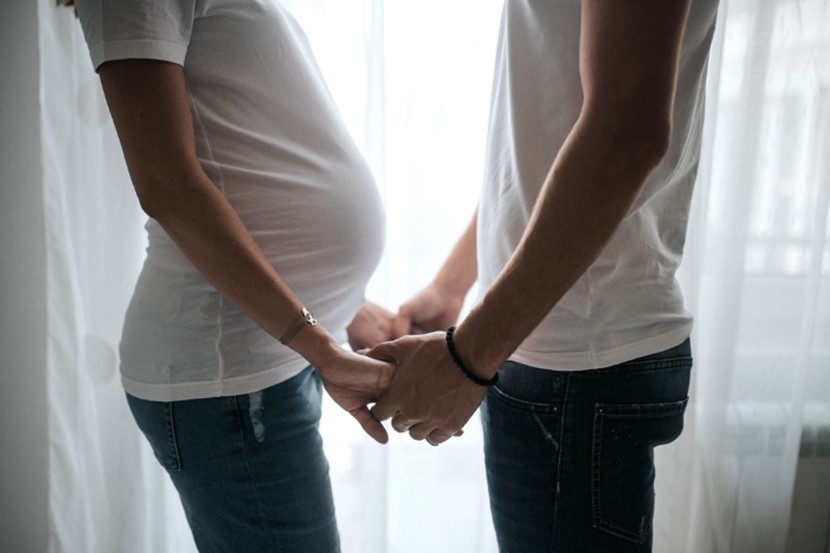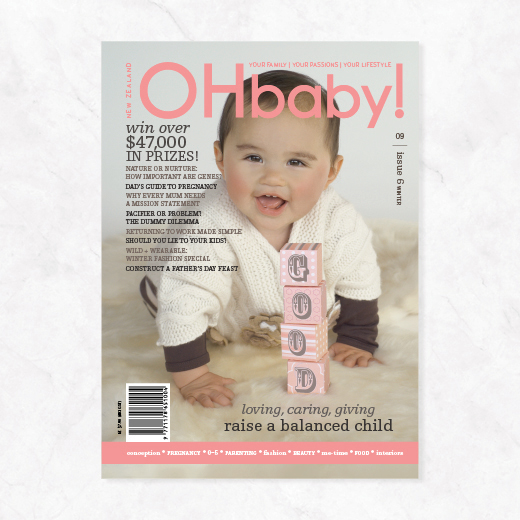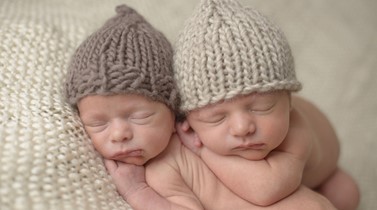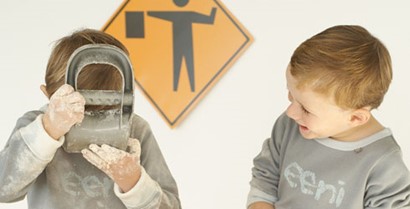Dad-to-be survival guide

Finding out your partner is pregnant is the beginning of a new journey for both of you. Dr Anil Sharma offers his advice on life as a dad-to-be.
For the first-time dad, pregnancy can be a physical and emotional rollercoaster - different in magnitude to his partner's, but nevertheless full of thrills, spills, and bellyaches. Pregnancy is a time for celebration, major changes, and mutual support. Joining in the events for the next nine months or so, and then the rest of your life, will be far more rewarding and challenging than sulking out of it!
Although it might be easier to back off and get on with work and bringing home the moolah, spend some time learning about what happens to your partner in pregnancy - perhaps by reading her pregnancy book, or the pregnancy information on the OHbaby! website. If you start learning the lingo, the whole experience will be more interesting and you won't just feel and look like a spare part.
However, a word of advice: Try not to know a lot more than her, or to always ask more questions than her in your antenatal class. Save being a smartass for in front of your mates - imagine how you would feel if she knew a lot more than you (and showed it) when you were in a car showroom or DIY store!
As your partner gestates, you are likely to find you have a lot more time on your hands, as she will probably get into early nights and reading about pregnancy. Use this time wisely by furthering a hobby or even just slacking - whatever makes you happy. Remember, though, that after the baby arrives, you are likely to be busy and knackered, so any time wasted now is going to hurt later.
Weight gain for women makes them feel worse than you feel when your favourite team gets thrashed, or when someone backs into your car, so do try and be sensitive. Remember to make her feel as loved and happy as before - or more so! Major changes are afoot, and these include her waist, her general weight, and her breasts. Remember that the latter have a major purpose in life besides for your entertainment, and pregnancy changes also lead to increased sensitivity in them.
Morning sickness is actually "all day and all night sickness" for most of the unlucky women who get it. Try and be empathetic - put yourself in her position and try to understand how it must feel. Remember that time you (as a young man, of course) had "a few" beers with the lads followed by an excessive amount of hot curry? Later that evening, after a few more beers, you felt very ill until it was all regurgitated. Now capture that few minutes of nausea and vomiting and imagine feeling like that for many hours a day, or even all day (and night). I still remember our South Island trip during "our" first pregnancy as much for the vomit trail we left from Fox Glacier to Queen Charlotte Sound as anything else. Make sure you help your partner seek medical advice if needed, as there are some effective medicines available.
Eating during pregnancy often changes significantly, either because of "morning" sickness, or cravings for certain foodstuffs. For both of you, pregnancy may be a time to actually start healthy eating (with the odd treat), unless you are both in the (now minority) healthy BMI range. Remember, our mums all blame their figures on the pregnancies they had, and the cycle will repeat itself unless you take great heed and care. "Eating for two" is a fallacy - it's actually eating for one and one-tenth!
Sex during pregnancy is almost always fine unless your lead maternity carer advises against it for a specific medical reason. Be patient at times, though, as pregnancy hormones can make your partner's emotions more changeable. Pregnancy can actually make close physical contact and sex more intimate.
If you have both decided to find out your baby's gender, the first reliable opportunity is at the 19-20 week or anatomy scan (if you choose to have one). While I am not advocating lying to each other to hide your disappointment, if you were secretly hoping for a girl or boy and you get the other gender, try to be happy. One thing's for sure - you will love your baby regardless!
If you can attend the first lead maternity caregiver visit with your partner, you should. Going with her to any scans that she may have is also sensible as, despite appearing calm, she is likely to be slightly anxious before each one. Talk to her about her feelings regarding her other antenatal clinic visits. She may be quite happy to go to most of these by herself, particularly if it is difficult for you to get away from your work.
Antenatal classes during pregnancy are advisable. It isn't easy to go straight from work to an evening of education, but remember, it's likely to be even harder on your partner. Done well, antenatal classes can inform, educate, and alleviate anxiety. It pays to ask friends, family, and caregivers for advice regarding which ones to attend. I would advise that couples ask lots of questions in class, not least to make them lively, stimulating, and informative.
Good antenatal classes will also prepare you for labour and birth. It is a good idea to have a bag all packed to go from 36 weeks onwards. Trying to do this when being shouted at by your partner, whose waters have broken and who is having contractions, is not to be recommended. Don't forget the camera. Also, remember that you will be coming home earlier than your partner and baby, so don't pack for a two-week stay as you can bring in/take out stuff as you visit.
By this time, you will, of course, have worked out where you will be going and what the parking arrangements are when you get there. Remember to keep the petrol tank full around this time too. When my wife called me for her second labour, I had just begun what was likely to be a four-hour surgical procedure. Fortunately, a colleague took over from me - and he was still operating after our second little bundle of joy had arrived.
Like many things, there is no one-size-fits-all with regards to what you should do during labour. A few men can be traumatised by childbirth, and their understanding partners have alternative support people. However, most couples do the labour and birth "together". If you think just how frightening a new experience such as birth is, you will understand why your partner is highly likely to want you there. After all, this journey started with just the two of you. Calm encouragement and support is what is most needed; the midwives and doctors can then get on with their tasks.
Once the baby has arrived and you are all back at home, the hard work really begins. While the joy that a new baby brings cannot be understated, sleep deprivation is a terrible thing. Work with your carers, friends, and family to develop a strategy for coping. Unfortunately, this time can be quite socially isolating, as things like dinner parties, hanging out in pubs, and sports take a backseat.
Walking together with a sturdy baby buggy for Junior can be a great way for the two of you to get fit again. Otherwise, be prepared for weight gain as you both have sleepless nights and eat the wrong foods at odd times. While it is tempting to be a control freak, if family and friends offer help, accept things like supermarket shopping trips or help with cleaning.
Remember to look out for each other once you get home. The various changes that take place can trigger postnatal depression, and although this is mainly a condition that affects new mums, it can also occur in new dads. For more information, see "When your husband has PND".
Interaction and bonding with newborns often takes longer for us fathers compared with our partners. This is quite normal, and bonding will occur gradually, especially once you start getting some feedback from the baby (like their first smile). If you do have spare time at this early stage, feel free to work on the car or do those things around the house and garden that have been waiting. Maybe you could even try cooking the evening meal occasionally?
One more thing worth mentioning - please do not think for a second that caring for one, two, or three children full-time is easier than your employment. It is not. If you don't believe me, try it! The main thing to remember is that everything settles into a manageable routine in due course, all ready for the next addition to your family!
Dr Anil Sharma (MB ChB DGM FRCOG CCST [UK] FRANZCOG Dip Legal aspects of Med practice) is a specialist doctor in gynaecology and maternity. He is very involved in lectures and updates for family doctors and frequently takes part in debate regarding women's health and maternity for print media and radio. For further information about Anil's practice, visit www.dranilsharma.co.nz

AS FEATURED IN ISSUE 6 OF OHbaby! MAGAZINE. CHECK OUT OTHER ARTICLES IN THIS ISSUE BELOW

















